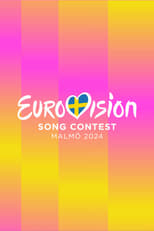

Julia Samoylova
Born: April 7, 1989
in Ukhta, Komi ASSR, RSFSR, USSR [now Komi Republic, Russia]
in Ukhta, Komi ASSR, RSFSR, USSR [now Komi Republic, Russia]
Julia Olegovna Samoilova (Russian: Ю́лия Оле́говна Само́йлова, IPA: [ˈjʉlʲɪjə ɐˈlʲeɡəvnə sɐˈmojləvə]; born 7 April 1989), sometimes credited as Yulia Samoilova or Julia Samoylova, is a Russian singer-songwriter. In early 2017, she was selected to represent Russia in the 2017 edition of the Eurovision Song Contest with the song "Flame Is Burning", but was subsequently banned from the contest's host country, Ukraine, due to violating Ukrainian law by entering Crimea through Russia in 2015, shortly after the region was annexed by Russia. In response to the ban, Russia ultimately withdrew from the contest. The following year, Samoylova was instead chosen to represent her country in the 2018 edition of the contest in Portugal. Performing "I Won't Break", she placed 15th out of 18 contestants in the second semi-final, failing to qualify for the grand final. "I Won't Break" was the first Russian entry not to reach the final since the introduction of semi-finals in 2004.
Movies for Julia Samoylova...

Title: Hotspot
Character: Veronika
Released: April 13, 2013
Type: Movie
You log into a social network everyday. You upload information about yourself. You alter some details about yourself. You make yourself seem more exciting. And then you change more and more details. You chat to people. You say things you wouldn’t say face to face. It’s not you. You have just created someone else. In a near future, Jeremy, a genius scientist, is developing Hotspot, a new type of social network that will change people’s lives.


Title: Eurovision Song Contest
Released: May 24, 1956
Type: TV
The Eurovision Song Contest is an international song competition, organised annually by the European Broadcasting Union (EBU) and featuring participants representing primarily European countries. Each participating country submits an original song to be performed on live television and radio, transmitted to national broadcasters via the EBU's Eurovision and Euroradio networks, with competing countries then casting votes for the other countries' songs to determine the winner.
